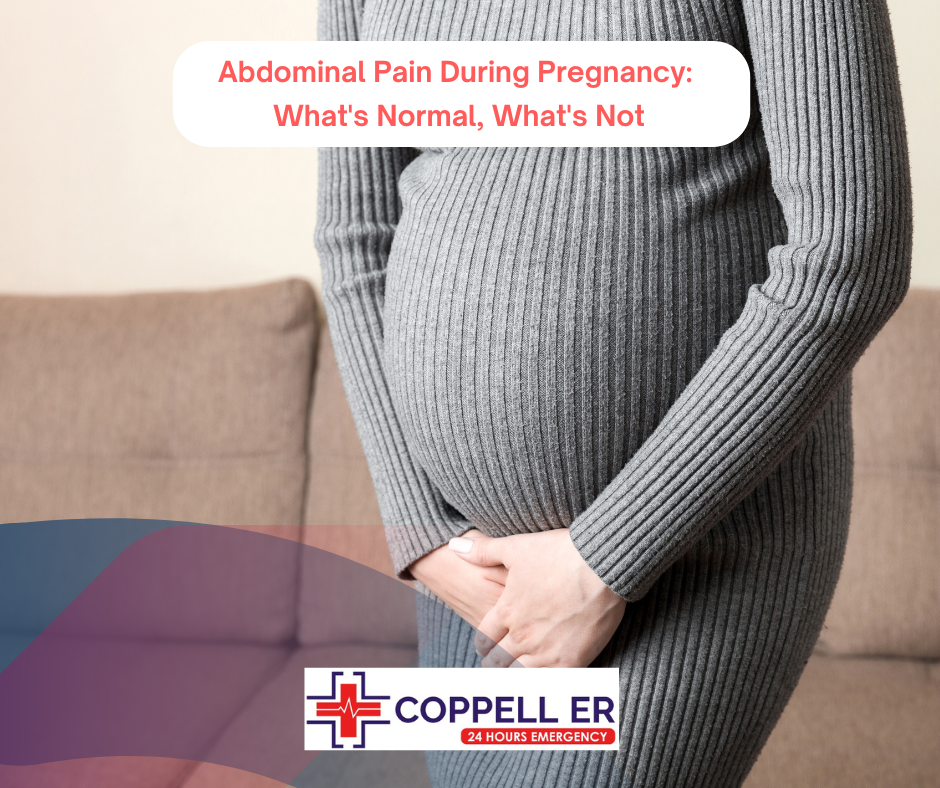
Introduction
Pregnancy is a beautiful journey, but it comes with many changes in the body. One of the most common symptoms expectant mothers experience is abdominal pain. While some discomfort is normal, understanding the Causes of abdominal pain in pregnancy can help ensure the health and safety of both the mother and baby.
Understanding Abdominal Pain During Pregnancy
Mild abdominal discomfort is a normal part of pregnancy due to the growing uterus, hormonal shifts, and stretching ligaments. However, severe or persistent pain should never be ignored. It’s essential to recognize when abdominal pain is harmless and when it signals a serious issue.
1. Round Ligament Pain
As the uterus expands, the round ligaments supporting it stretch, causing sharp, sudden pain on one or both sides of the abdomen. This pain is most common in the second trimester and worsens with sudden movements.
2. Gas and Bloating
Hormonal changes slow down digestion, leading to increased gas buildup and bloating. This can cause cramping and discomfort but is usually relieved by dietary adjustments.
3. Constipation
The hormone progesterone relaxes muscles in the digestive tract, leading to slower bowel movements and constipation, which can cause abdominal pain.
4. Braxton Hicks Contractions
These “practice contractions” are irregular and often painless, but they may cause mild discomfort. Staying hydrated and resting can help ease them.
5. Urinary Tract Infections (UTIs)
UTIs are common in pregnancy and can cause lower abdominal pain, burning during urination, and frequent urges to pee. If untreated, they can lead to kidney infections and complications.
6. Ectopic Pregnancy (Early Pregnancy Concern)
In rare cases, a fertilized egg implants outside the uterus, typically in a fallopian tube. This causes sharp, intense pain on one side of the abdomen, along with dizziness and bleeding, requiring immediate medical attention.
7. Miscarriage (Early Pregnancy Concern)
Abdominal cramps, lower back pain, and vaginal bleeding may indicate a miscarriage, especially during the first trimester. Seek medical attention if these symptoms appear.
8. Placental Abruption (Late Pregnancy Concern)
A serious condition where the placenta detaches from the uterus before delivery. Symptoms include severe abdominal pain, back pain, and vaginal bleeding. This requires urgent medical care.
9. Preeclampsia (Late Pregnancy Concern)
A condition characterized by high blood pressure, swelling, and protein in the urine. Severe abdominal pain, particularly in the upper right area, may signal a serious complication.
10. Preterm Labor
If contractions begin before 37 weeks, they could indicate preterm labor. Symptoms include cramping, back pain, pelvic pressure, and watery discharge. Seek medical attention immediately.
When to See a Doctor
Seek medical help if you experience:
- Severe or persistent abdominal pain
- Heavy vaginal bleeding
- High fever or chills
- Painful urination
- Sudden swelling in the face, hands, or feet
- Vision changes or dizziness
FAQs
1. Is abdominal pain normal during pregnancy?
Mild abdominal pain is normal due to the growing uterus, but severe or persistent pain should be evaluated by a doctor.
2. What can I do to relieve mild abdominal pain during pregnancy?
Rest, stay hydrated, and practice gentle stretching. If pain persists, consult a doctor.
3. Can stress cause abdominal pain in pregnancy?
Yes, stress can lead to muscle tension and digestive issues, which may contribute to abdominal discomfort.
4. When should I worry about cramping during pregnancy?
If cramps are severe, frequent, or accompanied by bleeding, contact your healthcare provider immediately.
5. Can abdominal pain indicate labor?
Yes, labor pain typically starts as lower abdominal cramps that become stronger and more frequent. If you suspect labor, seek medical care.
Conclusion
Understanding the different causes of abdominal pain in pregnancy can help expectant mothers know when to seek medical attention. While some discomfort is normal, severe or persistent pain should never be ignored. Er Of Coppell provides expert emergency care to ensure the health and safety of both mother and baby. If you experience concerning symptoms, visit us for prompt medical evaluation.